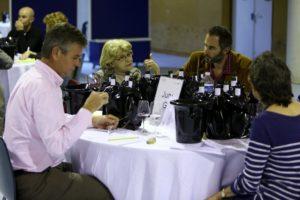Published in Organic News, Winter 2013, NSW Department of Primary Industries
by Sam Statham, Rosnay Organic Wines, Canowindra, NSW
I have been growing organic grapes for over a decade, as well as other crops, and in 2012 I was the lucky winner of a study prize to improve my knowledge and business by going overseas. The award was the Inaugural NSW Organic Pioneers Award presented by the NSW Department of Primary Industries and industry sponsors.
As my mother is French and as I have cousins there, including some in the wine industry, I decided to go to France, and booked a trip for myself, my wife Simone and our three kids, with the funds from the award. Once we got there, we had accommodation sorted in a tiny village near Limoux, in the Pyrenees (famous for its sparkling that pre-dates Champagne), and we had a car lined up. Not much else had been organised.
Having spent one year in university in France 20 years ago almost, I knew that there was some good wine in the Languedoc region, which shares a similar hot, dry and sometimes extreme climate as we love in Australia, but which is challenging for making good wine, especially organic wine. However, thanks to the heat and low humidity, the region is also the home of most of the country’s organic and biodynamic wine producers.

Before going, I had contact with an association of over 200 certified organic Languedoc growers known as SudVinBio, and was lucky to be offered a position of associate judge in Signature Bio, their annual wine show, which is normally only for trade and media, on the coast near Narbonne. We drove down via some back roads and cathar castles, and stayed in an almost empty motel. The wine show was much bigger than its equivalent run by Max Allen in Australia, especially in the number of judges, probably over 50 of us. I met the renowned British master of wine and specialist in the Languedoc, Rosemary George, oenologists, somelliers and trade. I also got to taste some great organic wines made from old varieties that I later traced back to the vineyards where they were grown as the basis of my research.